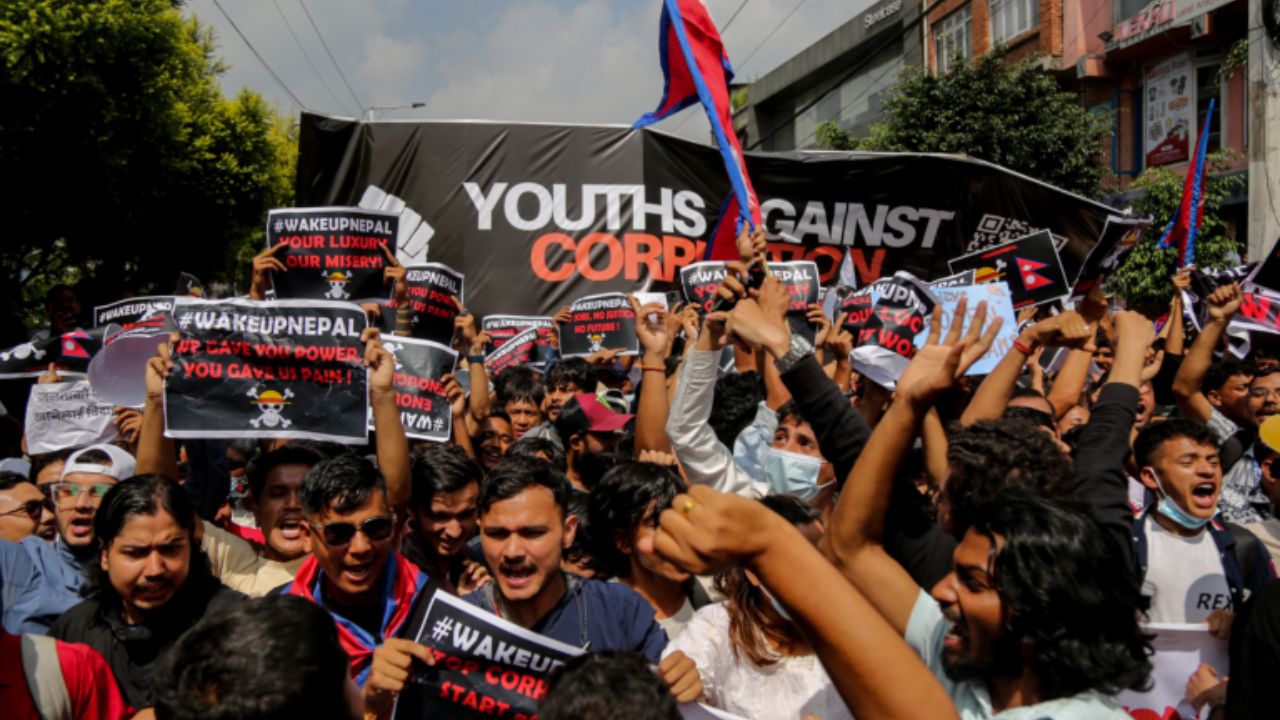 English
English

The Nepal government banned major social media platforms like Facebook, WhatsApp, Instagram. Youth across the country took to the streets in protest against this decision and the protest took a violent turn.

Youth protest against social media ban in Nepal
Kathmandu: Nepal is going through a deep state of political and social crisis today, where widespread unrest and protests are going on in the country after the resignation of Prime Minister KP Sharma Oli. There are many deep reasons behind this uproar, which are affecting the country's politics, economy and social fabric. Let us know the five major reasons for the current condition of Nepal:
On 3 September, the Nepal government banned major social media platforms like Facebook, WhatsApp, Instagram. Youth across the country took to the streets in protest against this decision and the protest took a violent turn. The protesters even attacked the Parliament building, leading to a fierce clash between the police and the protesters. So far 19 people have died and many are injured in this violence.
Also Read: Nepal Prime Minister KP Sharma Oli resigns over anti-corruption protests
The Nepal government has long been facing serious allegations of corruption and nepotism. Many cases of the luxurious life and corruption of leaders and their families have been exposed on social media. The 'Nepo Baby' campaign has further increased the resentment among the youth. Many scandals of the government have forced the public to lose faith in the government.
The unemployment rate among youth in Nepal is increasing, which has currently reached 10.71 percent. The inflation rate is also 5.2 percent, which is affecting the lives of common people. About 56 percent of the country's economic wealth is owned by only 20 percent of the people, including the political leadership. This economic inequality is a major reason for the anger and frustration of the youth.
After KP Oli's government came to power, there has been a change in Nepal's foreign policy. Nepal promoted border disputes with India, which created tension in India-Nepal relations. At the same time, the policy of increasing closeness with China has also given rise to political and social discontent in Nepal. This situation indicates a major change in Nepal's traditional foreign policy.
Amidst corruption and political instability in Nepal, the demand for reinstatement of monarchy is gaining momentum. In the last five years, the government has changed three times in the country, which has not been able to create political stability. After the current violent protests and resignations, speculation of change of power has intensified. All these developments are a serious challenge to Nepal's democracy.
No related posts found.